when thread created inside wow64 process it anyway begin execute in 64bit mode - from LdrInitializeThunk inside 64-bit ntdll.dll.
inside this, when process is wow64, the Run64IfContextIs64 function is called - system try determinate - are thread must execute in native or wow64 context. this is done by checking tread start address - if it is within a native dll (currently this is ntdll.dll, wow64.dll, wow64win.dll, wow64cpu.dll ) - system run it in native (64 bit mode). call graph is

and in debugger we can see next debug print:
<pid>:<tid> Found inside *.dll
<pid>:<tid> InitialPC <rip> is within a native dll. Running native context unchanged.
special case is InitialPC was inside 64-bit kernel32.dll or 64-bit user32.dll (look for DllsToRemap ) - inside Run64IfContextIs64 called MapContextAddress64TO32 system check address inside native dll. in some case (say for DebugBreak) system try redirect this to 32bit kernel32.dll DebugBreak and execute in wow64 mode, but.. here bug - crashed. in most case - system redirect address from 64-bit kernel32.dll (or user32.dll ) to Wow64pBreakPoint (not exported function) inside wow64.dll. this function executed in native (64-bit mode) - call int 3 (breakpoint) if debugger attached. after this simply terminate thread. in debug output we can view
<pid>:<tid> InitialPC <rip> found in the space reserved for 64-bit kernel32.dll
this is however exactly your case - you pass address of LoadLibraryA inside 64-bit kernel32.dll. which of course is error.
otherwise (if PC not inside 64-bit module) - system execute this thread in wow64 context, what we and need here

<pid>:<tid> ThunkStartupContent64TO32: Original InitialPC <rip>, StartupAddress <eip>, Arg1 <pv>
<pid>:<tid> ThunkStartupContext64TO32: Thunking RTL user thread start
after BTCpuSimulate thread go to the LdrInitializeThunk from 32-bit ntdll.dll and execute as usual in wow64 context.
so we need instead address of LoadLibraryA inside 64-bit kernel32.dll got address of LoadLibraryW inside 32-bit kernel32.dll. however this task is not simply if try use only documented win32 api. i use for this ntdll api (and some of this not documented). however as is:
PVOID getRVA(PVOID Base, ULONG_PTR BaseAddress, PCSTR Name)
{
if (PIMAGE_NT_HEADERS32 pinth = (PIMAGE_NT_HEADERS32)RtlImageNtHeader(Base))
{
BaseAddress -= pinth->OptionalHeader.AddressOfEntryPoint;
DWORD Size, exportRVA;
if (PIMAGE_EXPORT_DIRECTORY pied = (PIMAGE_EXPORT_DIRECTORY)
RtlImageDirectoryEntryToData(Base, TRUE, IMAGE_DIRECTORY_ENTRY_EXPORT, &Size))
{
exportRVA = RtlPointerToOffset(Base, pied);
DWORD NumberOfFunctions = pied->NumberOfFunctions;
DWORD NumberOfNames = pied->NumberOfNames;
if (0 < NumberOfNames && NumberOfNames <= NumberOfFunctions)
{
PDWORD AddressOfFunctions = (PDWORD)RtlOffsetToPointer(Base, pied->AddressOfFunctions);
PDWORD AddressOfNames = (PDWORD)RtlOffsetToPointer(Base, pied->AddressOfNames);
PWORD AddressOfNameOrdinals = (PWORD)RtlOffsetToPointer(Base, pied->AddressOfNameOrdinals);
DWORD a = 0, b = NumberOfNames, o;
do
{
o = (a + b) >> 1;
int i = strcmp(RtlOffsetToPointer(Base, AddressOfNames[o]), Name);
if (!i)
{
DWORD Rva = AddressOfFunctions[AddressOfNameOrdinals[o]];
return (ULONG_PTR)Rva - (ULONG_PTR)exportRVA < Size ? 0 : RtlOffsetToPointer(BaseAddress, Rva);
}
0 > i ? a = o + 1 : b = o;
} while (a < b);
}
}
}
return 0;
}
PVOID GetWowLoadLibraryW()
{
PVOID pv = 0;
STATIC_OBJECT_ATTRIBUTES(oa, "\\KnownDlls32\\kernel32.dll");
HANDLE hSection;
if (0 <= ZwOpenSection(&hSection, SECTION_QUERY|SECTION_MAP_READ, &oa))
{
SECTION_IMAGE_INFORMATION sii;
if (0 <= ZwQuerySection(hSection, SectionImageInformation, &sii, sizeof(sii), 0))
{
PVOID BaseAddress = 0;
SIZE_T ViewSize = 0;
if (0 <= ZwMapViewOfSection(hSection, NtCurrentProcess(), &BaseAddress, 0, 0, 0, &ViewSize, ViewUnmap, 0, PAGE_READONLY))
{
__try {
pv = getRVA(BaseAddress, (ULONG_PTR)sii.TransferAddress, "LoadLibraryW");
} __except( EXCEPTION_EXECUTE_HANDLER) {
}
ZwUnmapViewOfSection(NtCurrentProcess(), BaseAddress);
}
}
NtClose(hSection);
}
return pv;
}
after this task became trivial:
if (PVOID wowLoadLibraryW = GetWowLoadLibraryW())
{
//PCWSTR szLibPath = ...
SIZE_T s = (wcslen(szLibPath) + 1) * sizeof(WCHAR);
if (HANDLE hProcess = OpenProcess(PROCESS_ALL_ACCESS, FALSE, <pid>))
{
if (PVOID pv = VirtualAllocEx(hProcess, 0, s, MEM_COMMIT|MEM_RESERVE, PAGE_READWRITE))
{
if (WriteProcessMemory(hProcess, pv, szLibPath, s, 0))
{
if (HANDLE hThread = CreateRemoteThread(hProcess, 0, 0, (PTHREAD_START_ROUTINE)wowLoadLibraryW, pv, 0, 0))
{
CloseHandle(hThread);
}
}
}
CloseHandle(hProcess);
}
}

